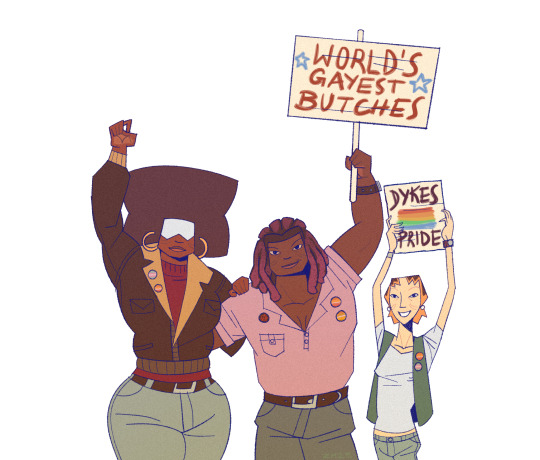Text
The Brazilian Lesbian and Bisexual Women's Seminar, Senalesbi, was called Senale until 2016, excluding bisexual people. “For all these years we built Senale, so that, after much struggle, the participation of bisexual women in these spaces would be recognized. I can't say this is a fight of the present because we [bisexuals] have been in several fights, but we just don't get the recognition”, black bisexual activist Ana Paula Rosário points out.
It was only in its 10th edition, which took place in 2018 in the capital of Bahia, that Senalesbi had its first circle of bisexual women. However, Ana Paula remembers how much resistance there was from the public, and how the event generated moments of frustration and exhaustion. The meeting brought together around 200 women from different states, and while organizing the event she heard phrases such as “bisexuals are not to be trusted”, “bisexuals shouldn’t even be here”, “lesbians cannot date bisexuals”.
“For me, someone who approaches a black woman and says: 'you don't deserve people to have relationships with you because you're bisexual', doesn't understand the impacts of racism, the loneliness of black women and the various denials that occur to us since childhood. I also think the bisexual movement has the deficit of not discussing the impacts of racism on black and indigenous bisexual people”, she states.
When September [the month in which the Bisexual Visibility Day and the Bisexual Awareness Week takes place] passes, the tables that debate sexual diversity do not always call on representatives of the letter B of the acronym, or they do so in much smaller numbers than with the other letters. Thus, topics such as the hypersexualization of bi people, who are often targets of invitations to “ménage à trois”, the misinformation that causes society to still see this group as vectors of disease, and the impacts on the self-esteem of these people remain dormant.
Against all misinformation and prejudice, Ana Paula suggests that bisexual people motivate themselves to organize spaces by/for bisexuals, where they can talk about themselves freely and without censorship. “I think that after the pandemic is over, what we mainly have to do is: bisexual parties, bisexual circles, bisexual groups. Because this is also how we empower ourselves, train ourselves and become politically informed.”
—Bisexual Visibility Day: activists talk the origins and trajectory of the movement and report challenges
#bisexual#bisexuality#bi history#bi#brazil#queer history#lgbtqia#lgbtq#biphopia#queer#lgbt#2010s#translation
1 note
·
View note
Text
Bisexuals were banned from attending the Mardi Gras gay & lesbian pride event in the 1990s.
In the membership forms, if applicants tick the boxes marked gay, lesbian, or transgender their membership will be accepted with no further ado.
However, if the applicants tick the boxes marked bisexual, they had additional questions to answer to justify their presence at the event.

The irony, given Mardi Gras builds on the celebratory traditions of Pride – an event devised by a bi woman following the Stonewall riot in 1969 – will not be lost.
(picture taken from Melbourne Star Observer 3 May 1996)
X X
146 notes
·
View notes
Text
some historical bisexual photos!






reminder for this pride that bisexuals have always been a part of queer liberation, we have always existed and we always will <3
817 notes
·
View notes
